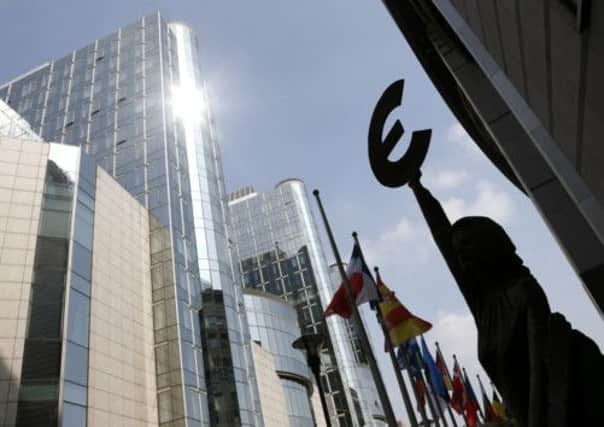Scottish independence: EU advice received


• Further details of EU advice will be disclosed in White Paper in November
Deputy First Minister Nicola Sturgeon said last October that ministers just commissioned “specific legal advice from our law officers on the position of Scotland within the European Union”.
Advertisement
Hide AdAdvertisement
Hide AdThey have now received that advice, a government spokeswoman said.
“The content of any legal advice is confidential. By long-standing convention, successive Scottish and UK governments do not disclose the content of law officers’ advice,” the spokeswoman said.
“The Scottish Government remains entirely confident of the common-sense position, supported by a number of eminent experts in EU affairs, that if the people of Scotland vote in favour of independence, Scotland would notify its intent to remain a member of the EU and would negotiate the specific terms of that continued membership in the period between the referendum and the first day of independence.
“An independent Scotland’s continued membership of the EU will be set out in due course in the White Paper which, as the Deputy First Minister made clear in October, will be fully consistent with our legal advice.”
Attitude of member countries
It comes as former Irish prime minister John Bruton said that an independent Scotland could “probably” complete negotiations with the EU about membership in the 18 months between next September’s referendum and March 2016 when the Scottish Government hopes the country will have become independent.
An independent Scotland would have to become a new member of the EU, and the attitude of existing members to it joining would be important, said Mr Bruton who was also EU ambassador to the US for five years.
“The attitude of the rest of the UK will be very important. The attitude of every one of the other 28 member states will be important because when it comes to admitting a new member, and Scotland would be becoming a new member of the European Union as an independent entity, every one of the existing members has a right to say yes or no,” Mr Bruton told BBC Scotland.
“This is a unanimous decision and there are certain criteria that have to be fulfilled before that unanimous decision would be taken. Could all that be done in 18 months? Well I think it probably could.
Advertisement
Hide AdAdvertisement
Hide Ad“The European Union ultimately, while it is based on rules and law, is a practical, political enterprise which works on the basis of mutual interests and compromise. And compromises are always found, sometimes with a bit of suspense involved, but they are always found to the big, difficult issues in the European Union.”
But there would be uncertainty whatever the result of the referendum, he said.
Opponents of the Scottish Government have questioned the terms on which a future independent Scotland would be granted EU membership.
Meanwhile Nationalists have highlighted David Cameron’s plans for a referendum on Britain’s continuing membership of the EU in 2017, arguing that the way to avoid the uncertainty this creates is by voting to leave the UK.
Mr Bruton said: “There will always be uncertainty about what might happen afterwards. You’re never going to get 100% assurance on all of the points that you might want an assurance on. Uncertainty will be part of the equation. Whether you vote Yes or whether you vote No, there will be uncertainty, and it’s simply a matter of people making the best judgment they can.”
SEE ALSO: